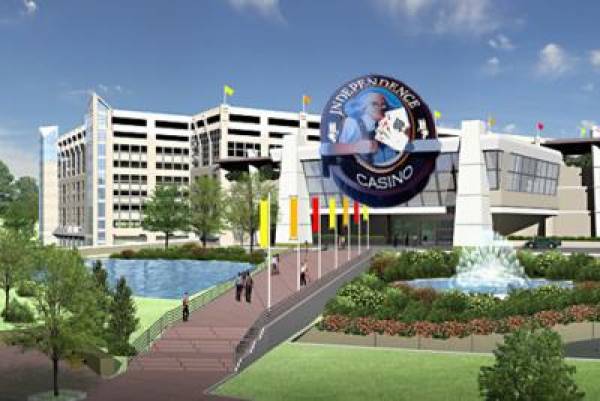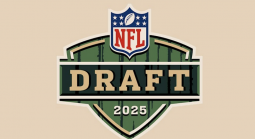100 Students, Ancient Burial Stop Philadelphia Casino?

Dale Buss, author of the riveting book "Family Man: The Biography Of Dr. James Dobson", has painted a bleak picture of the gambling industry in 2009, especially as it pertains to the city of brotherly love.
Philadelphia has long been trying to develop a casino industry, but Buss insists it won't happen any time soon.
Writing for the Wall Street Journal, he suggests that a group of 100 people gathering in a West Philadelphia apartment sang folks songs and passed out T-shirts that read "We the People Reject Casinos in Our City".
Buss reports:
They were able to commemorate success in keeping casinos out of Philadelphia despite the fact that two huge gambling operators desperately want to locate there. "Neither casino has a [construction] shovel in the ground," noted Paul Boni, a local attorney and member of the group's board. "Neither of them have their permits yet. And there are still plenty more rounds to be played."
One industry observer laughed at the notion of a small group of hippies taking credit for stopping Philadelphia from building a casino industry.
"I think the 100 people Buss mentioned in West Philadelphia protesting gambling in the city can only be university students who should be more concerned these days about finding ways to pay their tuitions. Most people in Philadelphia have accepted the concept of legalized gambling in their city and the type of revenue it would bring in, especially during these hard times where more and more municipalities are looking for that added revenue stream."
Once run down Atlantic City, an hour away from Philly, has certainly benefited from the many casinos which dot their boardwalk. Urban blight remains, but it would be far worse without the gambling, many argue. Just look at what happened to Asbury Park and a handful of other Jersey shore towns.
Buss explains the intentions of casino entrepreneurs moving into Philadelphia;
Shouldering into Philadelphia may prove to be the American casino industry's Waterloo. On one side are people like Chicago investor Neil Bluhm, who has targeted Northern Liberties and Fishtown (revitalized Philadelphia neighborhoods) for his SugarHouse casino. Another contender, the Pequot Indian tribe, recently changed its proposed venue to an existing mall just a few blocks from the Liberty Bell. So unlike the situation in Detroit, where casino projects could pose as alternatives to urban blight, in Philadelphia they clearly would be the blight.
"Buss obviously does not know Philadelphia and he's never been to Fishtown," our industry analyst points out. "What are three girls standing together at a bus stop in Fishtown? A full set of teeth! There is not much room for failure in Fishtown so casinos can only help."
The SugarHouse Casino, for instance, is a proposed $550 million casino and entertainment project along the Delaware River waterfront that would support 5,000 slot machines and countless numbers of jobs.
The neighborhood has been working class for centuries. While poverty grew after jobs left in the de-industrialization which afflicted many "rust belt" cities, Fishtown's workers continued to maintain a stable working-class community. Today, the community is undergoing moderate gentrification characterized by significant rises in housing prices and the opening or upscaling of art, entertainment, and dining establishments.
The Wall Street Journal report that a group of individuals playing folk music loving college students has forced Philadelphia planners to rethink adding a casino complex is just another in a series of bizarre distractions surrounding development of the Sugarhouse Casino.
An ancient powerful civilization is said by some to have been buried under the proposed site.
SugarHouse archaeologists, led by an amateur local historian, unearthed part of a foundation on the property.
The historian, preservationist Torben Jenk, says the find is a portion of Batchelor's Hall - a society whose members included many prominent 18th Century Philadelphians, and where the nation's first botanical garden of medicinal plants was established in 1729.
"It's a 279-year-old structure, and we found it using a 204-year old survey," said an excited Jenk. "It's the second oldest building that we can document to date in Fishtown."
Casino spokeswoman Leigh Whitaker said the casino's archaeologists, A.D. Marble, did not discover any lost civilization of any importance but rather perhaps someone's gazebo. Plus they said "wrong century".
"We did not find Batchelor's Hall," Whitaker said. "We found a foundation of a residence or other building from the 19th Century."
The reality of SugarHouse is that, While there are a small number of neighborhood residents who have sought to prevent the casino from coming to the proposed building site due to quality of life issues, Fishtown Action (FACT), the largest membership organization in the nearby community with over 600 members, has continuously supported the casino project.
It is estimated that SugarHouse Casino will generate in excess of $1 billion in gaming taxes to the Commonwealth of Pennsylvania and the City of Philadelphia over the first five years of operation.
On January 24, 2008, the proposed SugarHouse Casino's submerged lands license was revoked by Mayor Michael Nutter of Philadelphia but last summer the Supreme Court ruled that the permits were legal.
Jagajeet Chiba, Gambling911.com
Advertisement: Get $500 in Free Cash when you join Wass Poker. The Bad Beat Jackpot is now up to just over $800,000!













